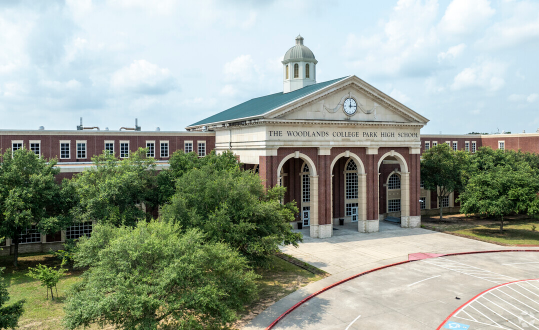COLLEGE PARK, TEXAS — A heartbreaking incident involving a junior from College Park High School on Interstate 45 near Highway 242 has left the community in mourning and reignited a crucial conversation around youth mental health.

While full details of the tragedy are still emerging, the emotional impact is being deeply felt throughout Montgomery County. The incident stands as a sobering reminder of the growing mental health challenges faced by teenagers and the importance of comprehensive support systems at home, in schools, and across communities.
Adolescence is often a turbulent period of emotional and psychological development. Today’s teens face increasing pressure—academic expectations, social media influence, identity exploration, and more. When these pressures go unnoticed or unaddressed, they can contribute to mental health struggles such as anxiety, depression, and feelings of isolation.
Experts stress that early detection and intervention are vital. Warning signs of potential mental health issues in teenagers may include changes in behavior or mood, withdrawal from friends and activities, changes in sleeping or eating patterns, and expressions of sadness or hopelessness. These indicators should never be dismissed.
College Park High School, like many educational institutions, offers on-campus counseling and mental health support services for students. In addition, numerous local organizations provide therapy, crisis response, and community-based resources aimed at supporting adolescents and their families. The Montgomery County Youth Services, along with national hotlines like the Suicide & Crisis Lifeline (988), are available around the clock for anyone in need.
In the aftermath of this tragedy, educators, mental health professionals, and parents alike are urging for more open conversations about emotional well-being. Reducing the stigma surrounding mental health is critical. Teens must know that it’s okay to seek help—and that they are not alone.
“Being willing to talk and to listen can save a life,” said one local counselor. “Every teen deserves to be heard, supported, and surrounded by people who care.”
The community continues to rally in grief and reflection, with messages of support for the student’s family and friends pouring in. School officials have confirmed that grief counselors will be available in the coming days to help students process the loss.
As the investigation continues, one thing remains clear: the well-being of our youth must be a shared priority. By cultivating a culture of empathy, awareness, and openness, the community can work together to ensure that every teenager knows they are valued, supported, and never alone in their struggles.
If you or someone you know is struggling, please reach out. The National Suicide & Crisis Lifeline is available 24/7 at 988. Help is always just a call away.